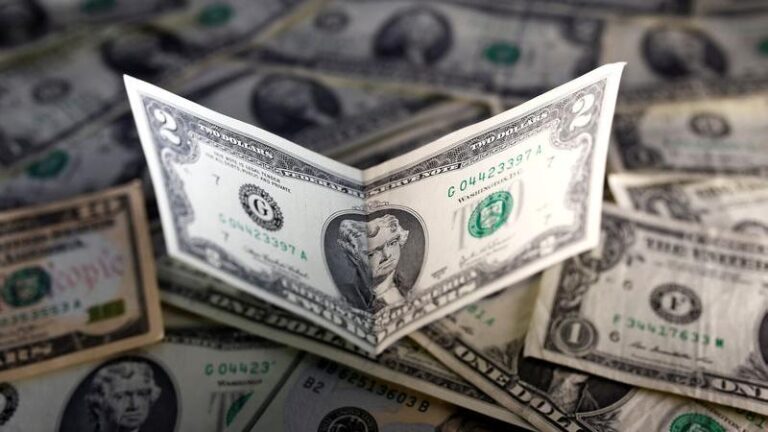
(Reuters) – The dollar eased in thin trade on Friday and was set for weekly losses as investors sought non-dollar assets due to improving risk appetite stemming from good news on COVID-19 vaccines and hopes for a smoother transition to a Biden administration.
“The U.S. Fed’s determination to keep interest rates low, which is in line with other major central banks, has also led to dollar-selling,” said Rikiya Takebe, senior strategist at Okasan Online Securities.
Otherwise, traders noted some month-end selling of dollars, but markets remained subdued after the U.S. Thanksgiving holiday on Thursday.
The U.S. dollar index fell 0.12% to 91.92 against a basket of major currencies, having slipped to a near three-month low of 91.84 overnight. It has lost around 0.52% against the basket for the week so far.
While the greenback will remain under pressure in near term due to prolonged “risk-on” sentiment led by vaccine hopes, Shinichiro Kadota, senior strategist at Barclays, said there were expectations it would firm in the medium term.
“When looking at how economies have grown in the July quarter, the United States made a strong rebound. In a scenario where vaccines become gradually available next year and economies return to normal, the U.S. will probably be one of the most resilient among developed countries. And I think that will create a dollar-favourable environment,” he said.
Separately on the vaccine front, British drugmaker AstraZeneca is facing questions about the efficacy of its vaccine, which some experts say could hinder its regulatory approval. But analysts say the news has had limited impact on the market so far.
Minutes from last month’s European Central Bank meeting further supported expectations for some policy stimulus at its December gathering.
In addition to the minutes, the ECB’s chief economist Philip Lane warned that tolerating “a longer phase of even lower inflation” would hurt consumption and investment as well as cementing expectations for low price growth in the future.
The euro firmed at $1.1923 against the greenback, away from a more than two-month high of $1.1941 it marked on Thursday.
Sterling fetched $1.3368, holding near a three-month high touched overnight, as market participants look for progress on Brexit talks.
The European Union chief negotiator Michel Barnier will discuss the state of of play on Friday with some of the bloc’s ministers responsible for fisheries, an EU official said.
The Australian dollar inched 0.25% higher at 0.7374 to trade close to a near three-month high, even as the Chinese commerce ministry said it would impose temporary anti-dumping measures on imports of Australian wine from Nov. 28.
Meanwhile, the Kiwi changed hands at 0.7018 against the greenback.
Against the yen, the dollar lost 0.3% to 103.94.
Bitcoin, the most popular cryptocurrency, last fetched $17,281.20 in volatile trade. Overnight, the cryptocurrency plunged as much as 13% to its lowest since Nov. 16, having earlier rallied close to its all-time high of $19,666.






